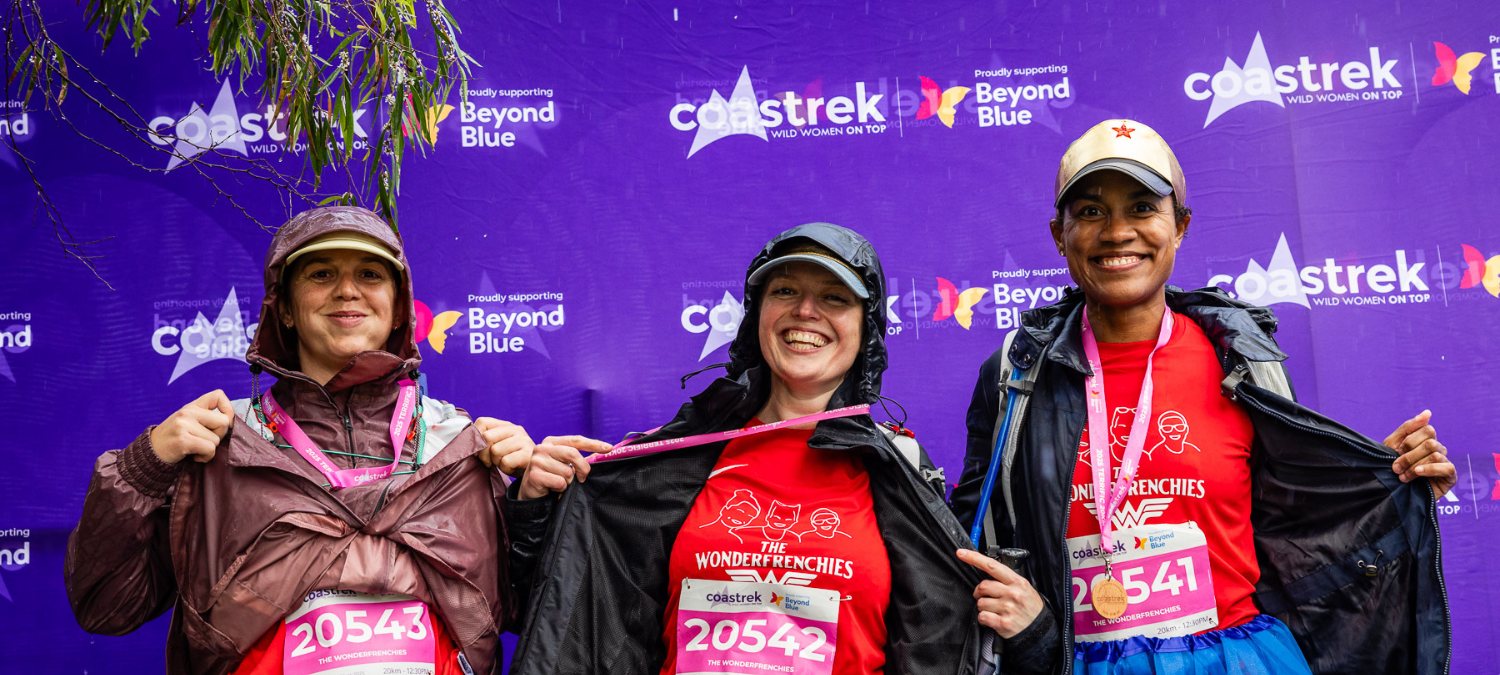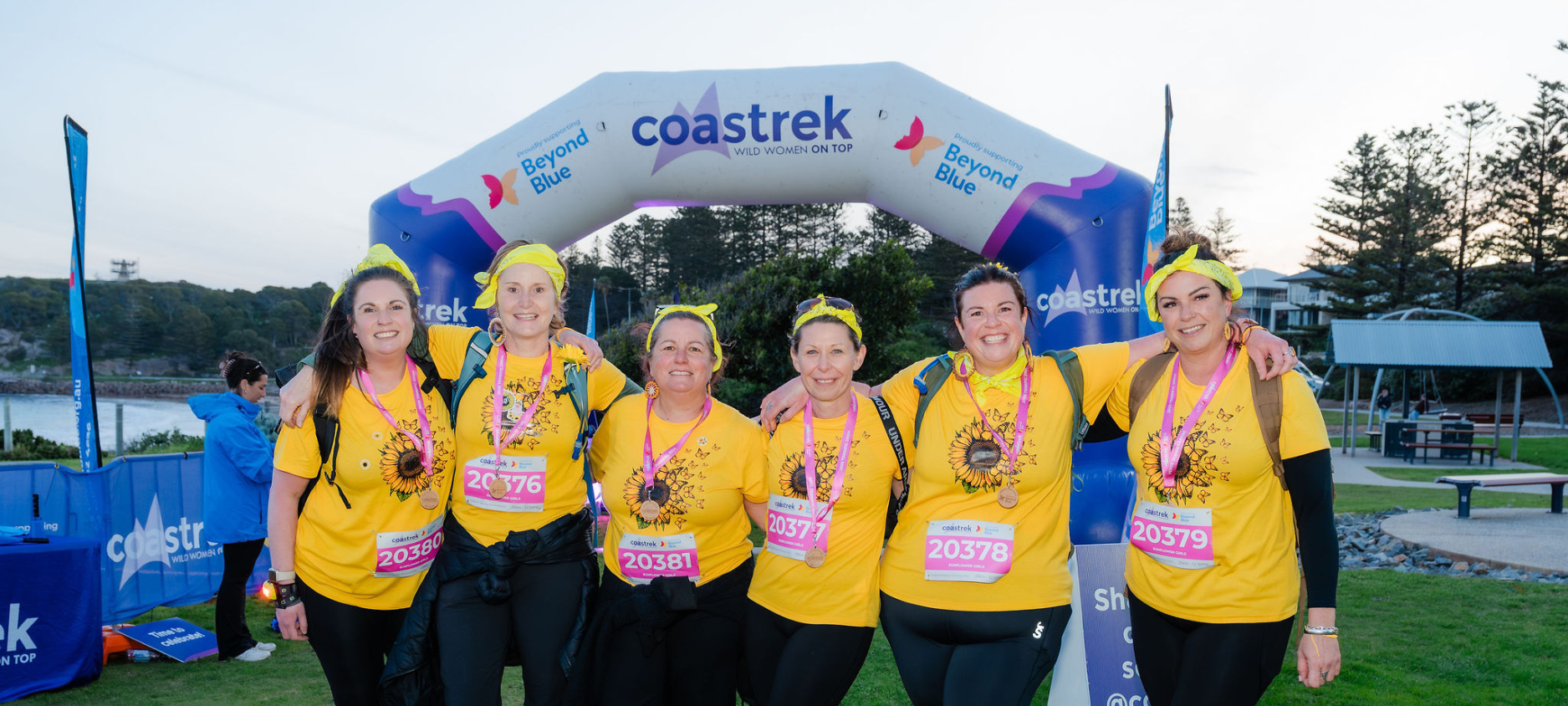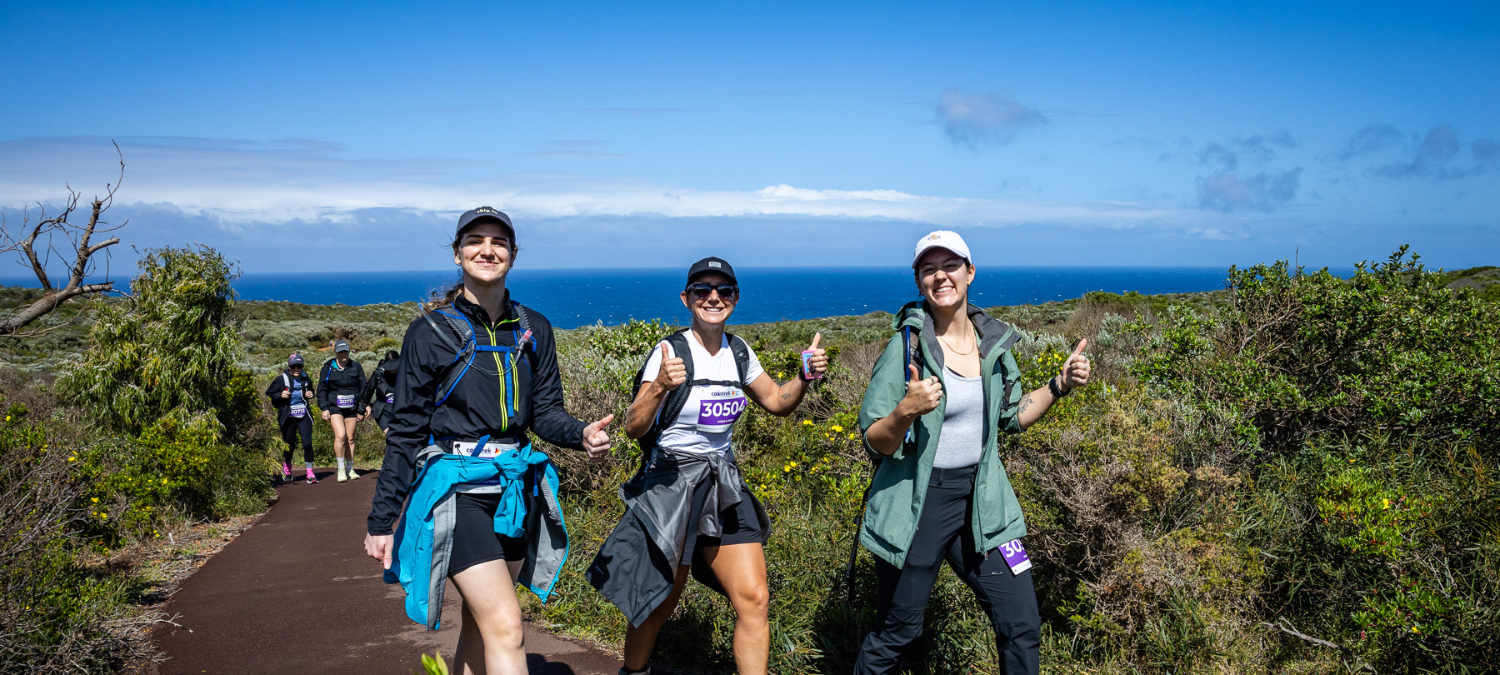By Tania Taylor | Wild Women On Top
Warning: This blog discusses mental health conditions and suicide. If this story raises issues for you, help and support is always available at Beyond Blue 1300 22 4636 and Lifeline 13 11 14.
Life as you know it can end on a day that starts completely normally.
On that day, seven years ago, I woke up, took the kids to school, went to work… everything was normal.
As I drove home from work, my phone flashed up an international call from ‘home’. Excited by the prospect of having a chat to my sister, I answered.
And then my whole world shattered.
My Dad, my rock, the strongest person I knew, had taken his own life.
In that moment, I did not understand what was about to happen to me. All I could think of was him and his pain, and what could possibly have gone wrong in his life for him to send such an ultimate message to the people who loved him.
My dad was one of the most charismatic, strong and courageous men I’d ever met. He was big in stature and had presence when he entered a room. He was my dad and I was so proud of that all my life. Suddenly, I wanted to protect him, I didn’t want people to think he was less than he was, or that he was weak or that there was something ‘wrong’ with him.
As these thoughts filled my mind, I had no idea this was the start of what would be a very long and difficult journey for me. I didn’t really stop to think about the impact his death would have on my own mental health. My mind was too full trying to think about how I could preserve him in my memory and in the memories of others.

Tania and her Dad. Photo: Supplied.
As I went through the various stages of denial, anger, bargaining and guilt, an abject sadness snuck into my heart and just sat there for a very long time. It engulfed me and made me feel weak at the knees whenever I allowed a memory of him to drift in. It wasn’t until 6 months after his death, when I once again called his phone just to hear his voice, that I realised he wasn’t ever coming back and that I was not coping.
If anyone mentioned his name or asked about my parents, I would feel this clamp around my heart, my eyes would start to water, and my body would start to shake. I’d shut it away quickly and make a joke or change the subject.
This went on for about two years.
During this time, I didn’t realise I was changing.
My entire family live in South Africa and I could not speak to any of my friends about him at all. I felt that if I allowed myself to cry, my heart would break into a million pieces and I would never be able to stop.
On top of all these feelings, I felt the sadness and loss as I realised I was now an orphan. I didn’t ‘belong’ to anyone anymore. I wasn’t anyone’s child.
I started to withdraw from my relationships, I was angry and sad all the time and I started to become quite anxious in social settings. I was afraid someone would ask me about my parents or my family and I’d have to explain, or that I’d burst into tears and make them uncomfortable. I didn’t want to be an orphan, I didn’t want to talk and I didn’t want anyone to hug me or look at me with pity in their eyes because that would make me cry, and I’d been conditioned to see crying as a sign of weakness. It wasn’t until much later that I realised how much strength and courage it takes to be vulnerable.
I had always lived my life like a true South African, live every day as if it was the last, enjoy every moment. LIVE! JUST LIVE!

"My personality transformed so significantly due to the fear of stigma surrounding suicide." Photo: Supplied.
After my dad died, this totally changed. I started to worry incessantly about my kids’ safety and wellbeing, and my own health and survival, constantly. I was fearful of dying, of letting them climb a tree, of letting them out of my sight, or flying in planes, or going on holiday and losing them.
I was crippled with anxiety and fear. My personality had transformed so significantly due to the fear of stigma surrounding suicide and my own mental health. In the past, I used to walk into a room and just chat to anyone, but now I had suddenly become introverted, aloof or ‘private’, as I’d call it.
I used to be a bundle of love, but now I would not let anyone come close to me. I even shut out my family and made myself believe it’s easier to be alone because I won’t have to deal with loss, or rejection, or being judged as weak.
If you’d asked my friends, they would tell you that I was tough, strong and very capable, and I certainly don’t take sh*t! But inside I was dying. I was shutting my real self away, because the hurt was too profound to face and I believed I didn’t have anyone to turn to.
It wasn’t until someone told me I was ‘cold’ and didn’t have any empathy that I realised I had locked my emotions away. I lived in fear that facing my heartache would break me. It took a lot of counselling, talking, and building trusting relationships before I was ready to open up and feel safe to share my story with others.
My dad’s death made me realise that mental health issues don’t discriminate. But it also presented me with something I never expected - my own mental health challenges and a long pathway to rediscovering myself.
I am now much better, but healing is a process. I have learned to open up to people, but I still take time to trust and I still feel anxious in social settings where I don’t know people well. It is now seven years since my dad died, and although I wish it wasn’t a lesson I needed to learn, it’s brought me an incredible opportunity for growth and change.
When Di and I decided to make Beyond Blue our charity partner for Coastrek, I immediately felt I’d found my way of giving back and opening up the mental health conversation. I am so passionate about creating funding opportunities to ensure we can help as many people as possible to be their best self.

"I want to be a part of breaking down the stigma that still surrounds mental illness." Photo: Rob Mulally for Wild Women On Top.
What do I want my legacy to be? I want to make a difference. I want to be a part of breaking down the stigma that still surrounds mental illness. Mostly, I want to ensure that soon nobody has to go through the heartache and trauma that we choose as our pathway when we hide our pain and our struggles by believing we need to be ‘strong’ or ‘private’.
I want to spread the message as wide as I can: “Ask for help because it’s courageous, and it’s worth it.”
Speaking up about mental health issues is a strength, not a weakness.






